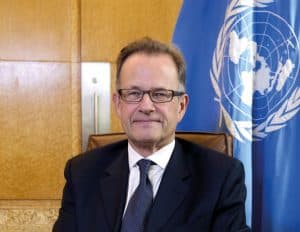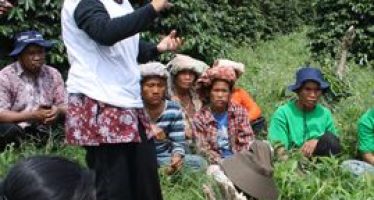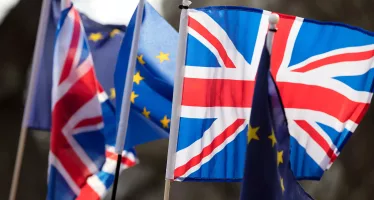Clarion Call to Unite Behind Push to Achieve SDG Targets

Michael Moeller
In September 2019, UN Secretary-General Antonio Guterres announced a Decade of Action for the SDGs — a clarion call to accelerate progress for people and planet.
Amake-or-break aspect of this push is to unlock the resources needed to finance the 2030 Agenda. Bridging the investment gap — estimated at between $2.5 to $3bn per year — will require partnerships involving the public and private sectors.
The level of investment required to achieve the SDGs makes it abundantly clear that governments alone cannot achieve them.
Private investors must be encouraged to align investments with sustainability-driven portfolios. The focus for investors must move away from niche to mainstream.
Despite increasingly positive signals, sustainable investment remains largely misunderstood and fuelled by misconceptions.
“Private investors must be encouraged to align investments with sustainability-driven portfolios.”
Significant efforts must be made to connect financial actors with development practitioners, ensuring there is a common language and a common understanding of what qualifies as a sustainable investment, and providing a pipeline of investable projects.
Initiatives such as Building Bridges Week, held last October in Geneva — organised by a partnership of the UN SDG Lab, Sustainable Finance Geneva, the Canton of Geneva, the city of Geneva and the Government of Switzerland — exemplify the level of collaboration that is needed to connect key actors from all sectors and to create incentives for engagement.
While the positive response to Building Bridges Week demonstrated the appetite for socially responsible investments, it also highlights the need to accelerate the momentum.
Sustainable finance will not just happen on its own, and driving the required mindset shift requires the commitment of leaders to bridge the SDG investment gap. i
A Career Civil Servant with a Mission to advance the UN
Michael Møller has 40 years of experience as an international civil servant in the United Nations.
His career began in 1979 as the UN High Commissioner for Refugees, and he worked for the organisation in various capacities in New York, Mexico, Iran, Haiti, Cyprus and Geneva.
In 1995-1997, he served as senior political adviser to the Director-General of UNOG. Between 1997 and 2001, he was head of the Office of the Under-Secretary-General for Political Affairs at the UN headquarters. From 2001 to 2006 he was director for Political, Peacekeeping and Humanitarian Affairs in the Office of the Secretary-General, while serving concurrently as deputy chef de cabinet of the Secretary-General for the last two years of that period.
Møller also served as the Secretary-General’s Special Representative for Cyprus from 2006 to 2008, and was the executive director of the Kofi Annan Foundation from 2008 to 2011.
From 2013-2019, he served as the director-general of the United Nations Office in Geneva, and as secretary-general of the Conference of Disarmament, with the rank of UN under-secretary-general.
In recognition of his efforts, Møller received prizes from the City of Geneva, the Union Suisse des Attachés de Presse, the Fondation pour Genève. He was most recently honoured by the Canton and Republic of Geneva, who conferred on him the Bourgoisie d’Honneur.
He is now the chairman of the Diplomacy Forum of the Geneva Science and Diplomacy Anticipator Foundation, senior adviser to Macro Advisory Partners, honorary president of the Digital Health Global Initiative Foundation, honorary president of the Advisory Board of the Defeat Non-communicable Diseases Foundation, honorary president of Art for the World, member of the executive board of the Kofi Annan Foundation, and member of the advisory boards of other foundations.`
He was born in 1952 in Copenhagen, Denmark, and earned a Master’s degree in International Relations from Johns Hopkins University, US, and a Bachelor’s Degree in International Relations from the University of Sussex, United Kingdom. i
You may have an interest in also reading…
Workers are Shunning Companies That Fail to Address Climate Issues
Concern about climate change has become so extreme that some people feel unable to perform at work because of “eco-anxiety”.
IFC, ECOM Training Helps Women Farmers Boost Income, Productivity
Women make up 80 percent of coffee farmers in North Sumatra of Indonesia and 50 percent in Lam Dong of
One Man’s View of the Mountain: UK Urgently Needs to Rejoin EU to Create Economic Security
Both parties are promising growth, but which policies are most likely to generate it? Growth is essential for continually improving


















































































